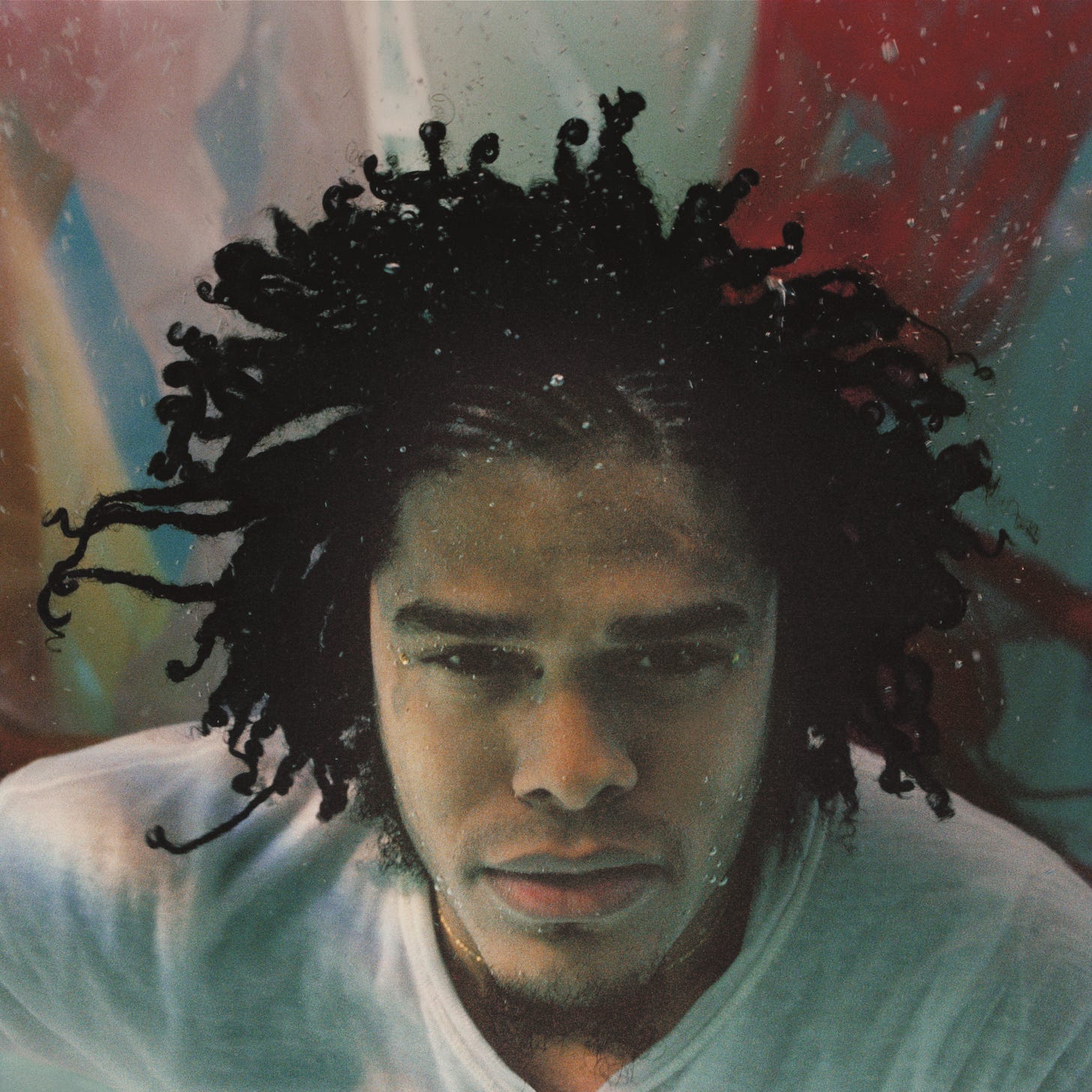Embrya: Unraveling the Fluidity of Maxwell's Second Album
An ode to liquid desire and boundless creativity in Maxwell's magnum opus.
While filming his VH1 Storytellers episode in 2011, Maxwell grappled with describing his second album - 1998's Embrya - and its unconventional position in his discography. Unlike the more concrete and defined R&B statements surrounding it, Embrya's vibe is more elusive. Maxwell asked his audience whether he should have created that particular record.
In 1996, Maxwell debuted on radio and MTV, bringing a sound that had been absent for years. It was soulful, quiet storm music that had reigned in the late-70s and early-80s. It was the genre that could either set the mood for love or break it apart. Modeled after Marvin Gaye's I Want You, Maxwell's debut album, Maxwell's Urban Hang Suite, was a series of linked seductive tracks exploring relationships' ups and downs. The album sold over two million copies and earned Maxwell a Grammy nomination.
The artist's goal was for his music to be like a fluid wave, following him wherever he went, defying categorization and analysis. He deliberately created a sound opposite to the funk and soul music of the 70s, which he considered Afro-centric. He desired to produce music enduring infinitely, untethered to any particular moment or theme. His album Embrya manifested this desire with songs that flowed like watercolors, resisting any attempt to be fixed or defined. It was as though he had opened a window in his city dwelling, and the ocean had come rushing in.
Embrya was created as a response to the artist's debut album, and it stands apart from any previous R&B records. With its submerged sound, it's unlike any other R&B album. Although the hooks are present, they are challenging to focus on as they emerge and disintegrate like waves in a bottomless lake. The flamenco guitar solos are like pulses on a radar screen, rippling and fading away. The strings create a stimulating effect and settle like clouds of silt at the bottom of an aquarium.
It's challenging to find the words to describe Embrya, as only some R&B albums, or albums in general, capture the essence of desire as thoroughly as this one does. Maxwell's piercing tenor is double-tracked so frequently that even its edges feel fluid, and his lyrics move beyond the direct romanticism of Urban Hang Suite into a realm of impressions and emotions that aren't always clear in the definition. He sings words like "plush" and "blush" in a way that blurs their meaning, and they dissolve into subtle petals of significance. The album is like a body of water, inviting the listener to immerse themselves in its depths.
The album's sound is diverse, with each song transitioning smoothly from chord to chord, making it difficult to determine where one track ends and another begins. For instance, the "Matrimony: Maybe You" pop-jazz tune transforms into a lively funk piece titled "Arroz con Pollo." The songs are like Monet's "Water Lilies," with their vivid colors and depth charges, painted as the artist's vision was fading and the world appeared to be melting into streaks of color.
Embrya is a work that features both verses and choruses. On "Luxury: Cococure," the groove creates a deep, mysterious pull from which the hook seems to emerge. "Drowndeep: Hula" is one of Maxwell's most tender and enigmatic ballads. Had the drumbeat been slower and more dilated, it might have produced an early version of Massive Attack's "Teardrop." On "Gravity: Pushing to Pull," Maxwell plumbs the depths with a voice riven with low distortions. However, as Embrya progresses, it can also feel like a lens is hovering over various soundscapes - hands swimming up the keys of a synthesizer, basslines played with such flexibility that they become invertebrate - briefly focusing them before they once again dissolve into the texture of the album.
Embrya and Voodoo, both masterpieces (the latter by D'Angelo), share a common quest for innovation beyond their previous works. Their slow grooves exhibit perpetual motion, although Voodoo's time is crisp and brittle, stretched to the limit, while Embrya's time feels thick and immeasurable. It passes gradually like a liquid counterpoint to Voodoo's spare and desiccated funk.
Maxwell's Embrya album takes you on a trip of seamless, amnesiac swellings that make it difficult to pinpoint the beginning or end of the experience. Maxwell describes Embrya as a "story that unfolds," but it's impossible to follow a single thread and trace it back to its source. Instead, the album is all-encompassing, a concept album without a concept, which evokes feelings, impressions, intimacies, and their absences, wave after wave, in an unending flow.


